Opening & Welcome
9:00
UTC+1 – 9:10
Speakers
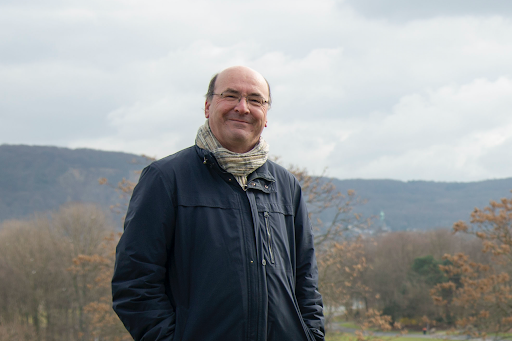
Thomas Haußman
Forest Europe – Head of the Liaison Unit Bonn
Thomas Haußmann is the Head of the Liaison Unit Bonn of Forest Europe. He has more than 30 years of experience in different international forest policy positions. He worked as a national expert at the European Commission in Brussels, at Germany’s Permanent Representation to the FAO in Rome and as chair of UNECE’s ICP Forests in Geneva.
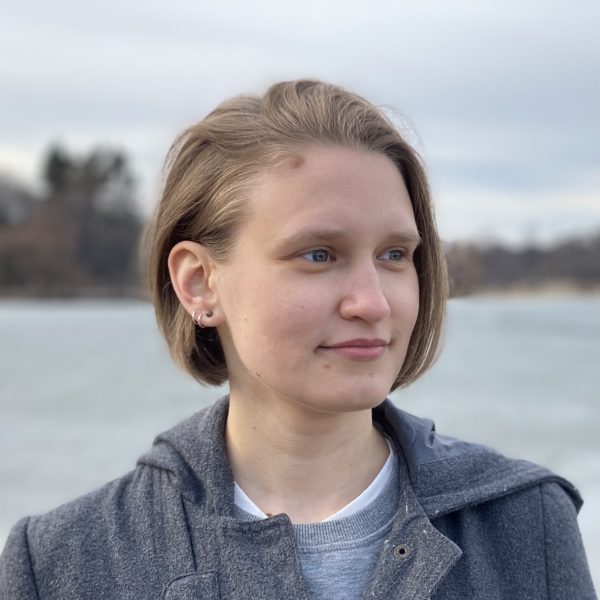
Alina Lehikoinen
Co-Head IFSA YFPD Task Force
Recording
International forest policy: setting the scene!
9:10
UTC+1 – 9:30
Speakers
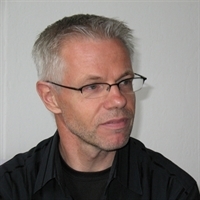
Bas Arts’
Wageningen University and Research
Prof. dr. Bas Arts (1961) holds a ‘Personal Chair in Forest Governance’ at the Forest and Nature Conservation Policy (FNP) group at Wageningen University, the Netherlands. Between January 2006 and July 2018, he was the Chair of FNP. Arts holds a Master in biology (Majors in forest ecology and in environmental sciences, 1987) and a PhD in the policy sciences and public administration (1998). Currently, Arts’ research and teaching focus on international forest, biodiversity and climate change governance, local natural resource management and their interconnections (local-global nexus, multi-level governance). His experience includes research in the Netherlands, Europe and the Tropics, interdisciplinary work with natural and social scientists, policy design and scenario development with stakeholders, and policy advice at various levels (United Nations, EU and Netherlands). He (co)produced over 150 academic publications, including journal articles, books and book chapters. During his career, he taught over 20 different courses on various topics related to his expertise, with various didactic approaches and forms, and at all levels (undergraduate, graduate, post-graduate, post-doctoral). FNP’s research program, led by Arts between 2006 and 2018, was evaluated by an international peer review committee in June 2015 and its quality and relevance were both assessed as ‘excellent’. His most recent book is Forest Governance: Hydra or Chloris (Cambridge University Press, 2021).
Recording
How do forest policies work?
9:30
UTC+1 – 10:15
Speakers
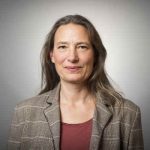
Susanne Winter
Program Director Forests, WWF Germany

Cecile Ndjebet
African Women’s Network for Community Management of Forests (REFACOF)
Ms Cécile Ndjebet is an agronomist and social forester by profession. Gender specialist and Women Leadership trainer and adviser, she holds a M.Sc. in social forestry from Wageningen University and Research in the Netherlands. She is one of the well-known leaders of CSO REDD&CC platform in Cameroon, where she is a National REDD+&CC Steering Committee Member; and Regional Coordinator of CSO REDD+&CC Platform of Central Africa.
To promote women’s direct and effective participation in natural resources management in Africa, in 2009, Cécile founded the African Women’s Network for Community Management of Forests (REFACOF), a regional network within 17 countries in West and Central Africa. In 2012, Cécile was elected Climate Change Champion of the Central African Commission on Forests (COMIFAC). At international level, Cécile is an active member of The U.N. Women Major Group and well-known advocate for women’s tenure rights within global women networks.
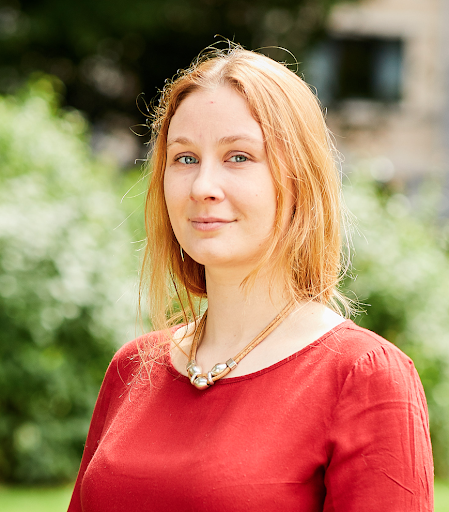
Helene Koch
The Confederation of European Forest Owners (CEPF)
Hélène Koch is Policy Advisor at the Confederation of European Forest Owners (CEPF) since 2020. Since 2018, Ms Koch has worked for CEF, first as Policy Officer then in her current position, with expertise in forest-related EU policy aspects regarding environmental, climate change adaptation, and rural development policies. Before joining CEPF Secretariat, Ms Koch completed a traineeship within the DG Environment of the European Commission. She then supported the work of forest team, mostly with regard to the issue of forest wildfires. Ms Koch is Belgian and holds degrees in MSc. in European Forestry and MSc. Forest Sciences from the University of Eastern Finland and the Albert-Ludwigs University of Freiburg. These studies allowed her to gain a better understanding of European forests and their management and included dedicated study trip in Europe and hand-on training. Then, her MSc. thesis work focused on the implementation of the EU Timber Regulation in France. Prior to this, she completed in Belgium an Industrial Engineering degree in Agronomic Sciences, specializing in environment and land management. When Hélène is not working, she enjoys spending time with her family, playing boardgames and going to the forest.

Bas Arts’
Wageningen University and Research
Prof. dr. Bas Arts (1961) holds a ‘Personal Chair in Forest Governance’ at the Forest and Nature Conservation Policy (FNP) group at Wageningen University, the Netherlands. Between January 2006 and July 2018, he was the Chair of FNP. Arts holds a Master in biology (Majors in forest ecology and in environmental sciences, 1987) and a PhD in the policy sciences and public administration (1998). Currently, Arts’ research and teaching focus on international forest, biodiversity and climate change governance, local natural resource management and their interconnections (local-global nexus, multi-level governance). His experience includes research in the Netherlands, Europe and the Tropics, interdisciplinary work with natural and social scientists, policy design and scenario development with stakeholders, and policy advice at various levels (United Nations, EU and Netherlands). He (co)produced over 150 academic publications, including journal articles, books and book chapters. During his career, he taught over 20 different courses on various topics related to his expertise, with various didactic approaches and forms, and at all levels (undergraduate, graduate, post-graduate, post-doctoral). FNP’s research program, led by Arts between 2006 and 2018, was evaluated by an international peer review committee in June 2015 and its quality and relevance were both assessed as ‘excellent’. His most recent book is Forest Governance: Hydra or Chloris (Cambridge University Press, 2021).
Recording
The role of youth in international forest policies
10:20
UTC+1 – 10:35
Speakers
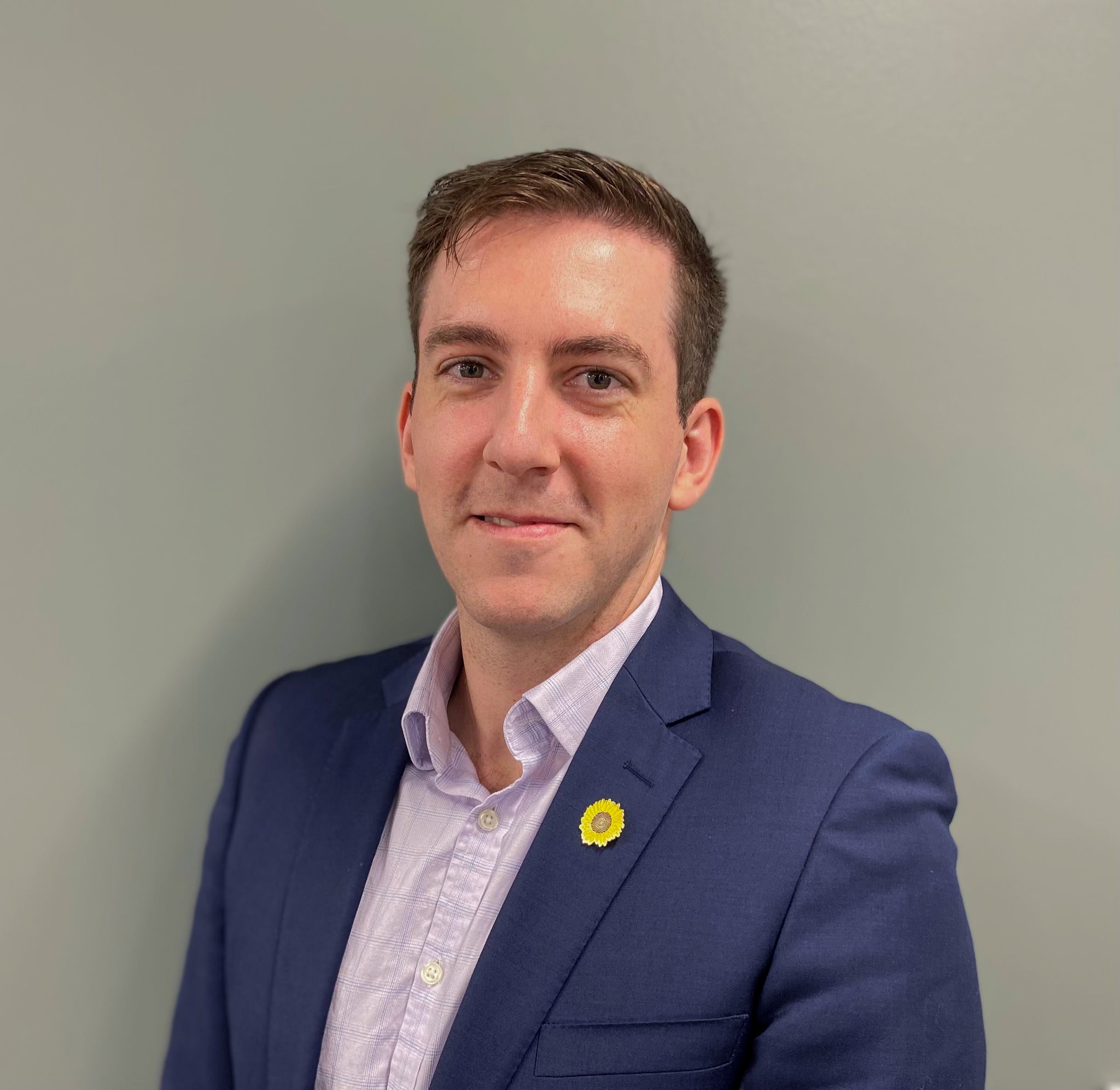
Jesse Mahoney
Counsellor (Agriculture)
Embassy of Australia, United States of America
Mr Jesse Mahoney commenced in Washington DC as Counsellor for Agriculture in July 2021. He works across the full breadth of Australia’s agriculture interests to promote our policies, to advance and promote market access interests, and maintain and grow the trade relationship with the United States.
Jesse is currently the Chairperson of the Council of the International Tropical Timber Organization (ITTO), and recently concluded his two-year term as Vice Chair of the UN Forum on Forests. Jesse worked closely with the International Forestry Students’ Association (IFSA) for four years, including as President in 2016-17.
Jesse joined what is now the Australian Department of Agriculture, Fisheries and Forestry (DAFF) in 2016, following a successful business development career in information technology. While he has briefly worked in areas spanning Australia’s threatened species protection, as well as domestic forest protections and covenants, he is best known for leading a team focused on Australia’s international forest policy settings. Jesse’s experience in forestry has spanned the administration of Australia’s illegal logging laws, bilateral and multilateral cooperation, wildfire response, and involvement in the negotiations for the free trade agreements with the European Union, United Kingdom, and Pacific Alliance.
Recording
Examples of Youth voices into Policy: Youth Call for action and Gender Open Letter
10:35
UTC+1 – 11:20
Address the Youth Call for Action, a document that highlights four core areas of action to promote meaningful inclusion, participation, and recognition of youth and young professionals in the forest sector, and which is the result of nearly two years of wide consultations across the world with different youth organisations and expert groups led by Major Groups for Children and Youth to the United Nations Forum on Forests and the WFC Youth Coalition with the support of the WFC Secretariat.
Speakers

Theresa Loch
IFSA Head of Gender Sub-Commission
Theresa Klara Loch (she/her) is the current Head of the IFSA Gender Sub-Commission and co-author of the IFSA Open Letter on Gender and Forest Education. She has been engaged in several initiatives on Gender inequalities since the beginning of her studies. In 2021, she joined the Gender Sub-Commission and is actively working toward an inclusive forest education and gender awareness within the forestry sector. Currently, she is a PhD student at the Chair of Forest and Environmental Policy of the University of Freiburg, Germany.

Amos Amanubo
Coordinator Youth outreach and liaison at FAO
Amanubo Amos is a Ugandan forester holding a Degree of Bachelors of Science in Forestry from Makerere University. He is a former President of International Forestry Students Association (IFSA) and Co-founder of Green Trust Africa an environmental organization. Prior to this role, he served as the Head of council of IFSA, with the scope of his work stretching over communications and capacity building. He has served as a youth representative on various forest science and policy platforms at regional and international level and also worked as the Eco-Voice for Uganda under the UN Environment Communication Project in support to the Pan-African Action Agenda on Ecosystem Restoration. With a strong background in youth engagement and Forest Education, he is motivated by the desire to see the forestry sector grow as one of the leading drivers of socioeconomic development and landscape sustainability, with young people at the lead.
Recording
Parallel session: Sustainable Forest Management
11:40
UTC+1 – 12:30
Speakers
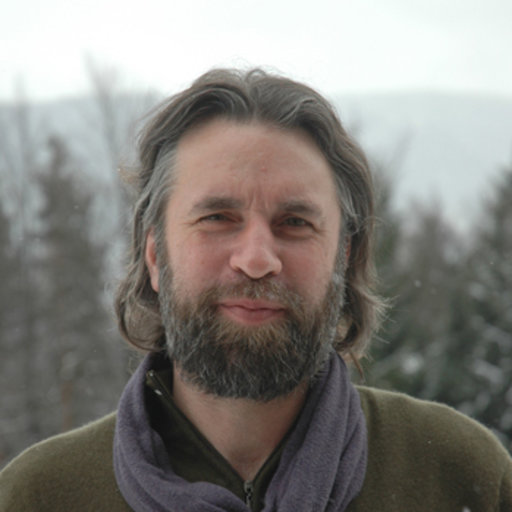
Bernhard Wolfslehner
Team Leader EFI-FE team and Head of the Governance Program at EFI
Bernhard has a PhD and Masters’ degree in forest sciences from the University of Natural Resources and Life Sciences (BOKU), Vienna. Since 2021 he is Team Leader of the EFI Forest Europe Team, where he is strongly engaged in scientific guidance, coordination and communication of the pan-European forest policy process.
Bernhard’s expertise and field of interest includes forest policy and governance, sustainable forest management, criteria and indicators, non-timber forest products and services, and multi-criteria decision support. Previously, he has been the Coordinator of EFI’s Forest Policy Research Network, Head of EFI’s former Regional Office EFICEEC-EFISEE, and senior researcher at the University of Natural Resources and Applied Life Sciences, Vienna.
Recording
Parallel Session: Halting deforestation
11:40
UTC+1 – 12:30
Speakers

Nelson Grima
International Union of Forest Research Organizations (IUFRO)
Nelson Grima has an academic background on Forest Engineering and Environmental Sciences, studying the relationships between forests and people, and the integration of ecology, sociology, and economics. Currently he is a project manager at the Global Forest Expert Panels (GFEP) Programme from the International Union of Forest Research Organizations (IUFRO), where he focuses on the science-policy interface. At GFEP they consolidate scientific information on forest-related issues to provide decision-makers with a solid ground on which they can base their decisions.
Recording
Parallel session: Restoration Stewards
11:40
UTC+1 – 12:30
There has never been a more urgent need to restore damaged ecosystems than now” – this is a phrase we have been hearing a lot, but action does not always follow through the nice speeches and global commitments. But this is not the case for many young people around the world, who are already taking matters in their own hands, restoring small or bigger areas of land. During this plenary session the Restoration Stewards of the Global Landscapes Forum will share insights about their projects, their motivation, their needs and their hopes for thriving livelihoods and restored landscapes.
Speakers
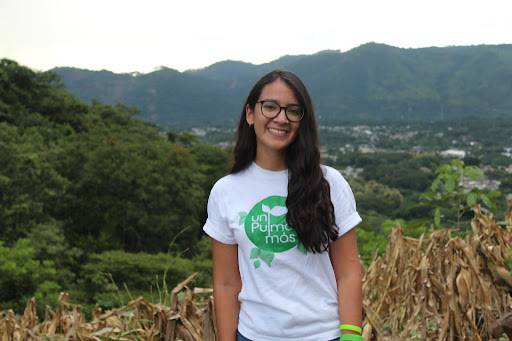
Gabriela Gavarrete
Gabriela studied Biology at the University of El Salvador. She is part of the board of directors of the Mesoamerican Society for Biology and Conservation, El Salvador Chapter, and Research Director at Un Pulmón Más. Winner of the Restoration Steward 2022 award from Global Landscape Forum and Youth in Landscape Initiative for forest ecosystem. Currently working in the management and coordination of ecosystem restoration projects focused on forest fire prevention, reforestation with native plants, implementing agroforestry systems, environmental education and conservation of ecosystems with a participatory community approach. Researcher in entomology and species conservation projects.

Eka Cahyaningrum
Eka holds a bachelor’s degree in Biological Sciences with experience in primate behaviour, biodiversity survey, mangrove, and peat restoration. She is also a co-founder of HIRAI (Himba Raya Indonesia), an NGO based in Central Borneo that aims to restore degraded peatland and build sustainable livelihood for the adjacent community.
In 2022, Eka was selected as a peatland restoration steward by the Global Landscape Forum to restore 60 ha of degraded peatland in Central Borneo. Her experience with community-based conservation projects made her realize that people are a crucial part of building a successful and sustainable conservation project, as it is the local communities who will face the direct impact of a damaged environment. For Eka, conservation is not only a job, it is deeply personal and she exerts her entire capacity to be fully immersed in the aims and goals of the project.

Eva Makandi
Eva Makandi, commonly known as Kandi, is the founder of Light On A Hill Organization (LOAH), a community-based organization focusing on Environmental Conservation/Restoration, Education and Talent Development. Professionally, she is a social scientist who holds a BSc in Community Development from Egerton University and currently pursuing MA in Peace and Conflict Management from Kenyatta University. She has community empowerment close to her heart. She firmly believes that every community can bridge its development gaps in different spheres by driving the whole change process if they have the suitable catalyst to guide them. She is an advocate of education and love/kindness towards one another. Kandi loves art, fashion, cooking and traveling.
Recording
Forest Finance contribution into SFM, halting deforestation and restoration
13:50
UTC+1 – 15:20
Global deforestation and land degradation threaten the livelihoods and wellbeing of millions of people. Currently, over two billion hectares of land have been identified for restoration, which creates high requirements for finance. There are diverse financing and market-based sources to raise these funds, among them: development cooperation resources, climate finance, non-governmental organisations (NGOs), State budgets, environmental funds, crowdfunding and private sector investments. This session aims at providing an overview of what is forest finance, what are the different financing mechanisms available, and highlight lessons learned from projects on the ground.
Speakers

Gabrielle Lipton
Moderator – GLF
Gabrielle Lipton is the editor of Landscape News for the Global Landscapes Forum and hosts its GLF Live platform of live interviews with experts. She is a multi-disciplinary writer, editor and communicator, with expertise in climate change as well as various sciences, politics, lifestyle, the arts and travel. Her writing has appeared in the New York Times, Wall Street Journal, Slate, Southeast Asian Globe and New York, among other international publications. Passionate about purpose-driven storytelling, she is concurrently penning a fiction novel, and also enjoys meditation and long-distance running.
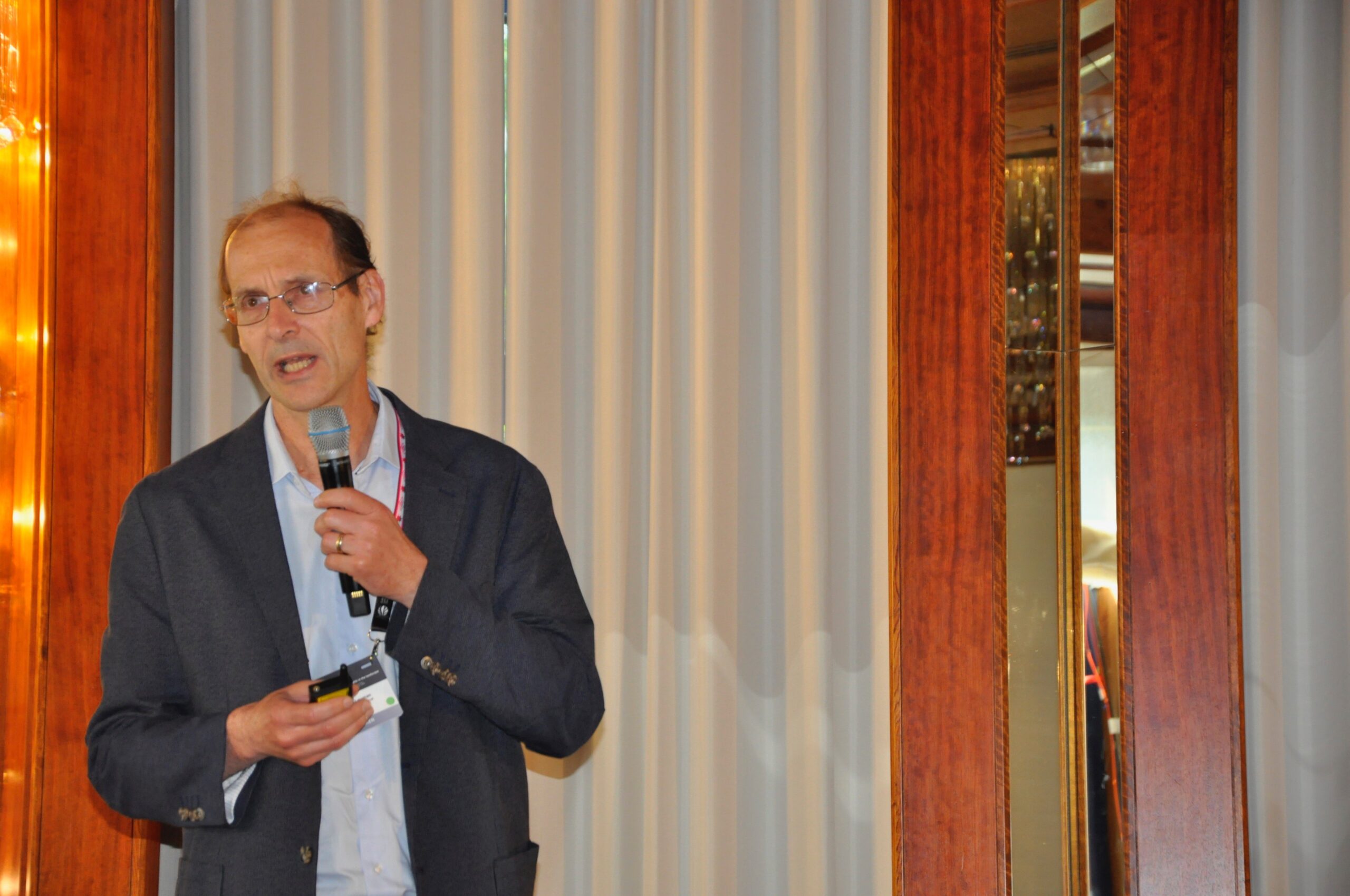
Bas Louman
Project Coordinator, Troperbors International
Bas Louman is programme coordinator at Tropenbos International, a Dutch NGO aiming to make knowledge work for forests and people. He specializes in forest management within tropical landscapes, and its interactions with climate and is currently working on innovative financial instruments and collaborative mechanisms in support of inclusive integrated landscape management. He obtained a PhD in natural science and development at a consortium of universities in Costa Rica, in which country he worked and lived for 20 years as forest management and climate specialist for the Tropical Agricultural Center for Research and Higher Education (CATIE). During seven years he coordinated the climate change and watershed management group of CATIE. As trainer, advisor and researcher he worked with communities, government officers and companies, aiming to make their use of the forests more sustainable and resilient to climate change.

Jorge Matallana
Climate and Ecosystem Services Officer, FSC
Jorge is a development professional, currently working at the Forest Stewardship Council (FSC) as Officer for the Climate & Ecosystem Services programme. The programme wants to bring the true value of forests to society by enabling the payment for the ecosystem services that forest stewards around the world deliver, so to scale the role of forest stewardship as a Nature-based solution to the climate and biodiversity crisis. His role entails coordinating the communications and market development of the programme, engaging with diverse stakeholders, and supporting the implementation of its strategy.
His educational background is in Development Economics, Political Science, and Business Administration. His professional experience has taken him in diverse directions, such as developing of social research and designing/executing of youth education programmes, always working from a transdisciplinary perspective. His experience in education gave him a special focus in communication and capacity building, given their essential role in the creation of sustainable solutions.
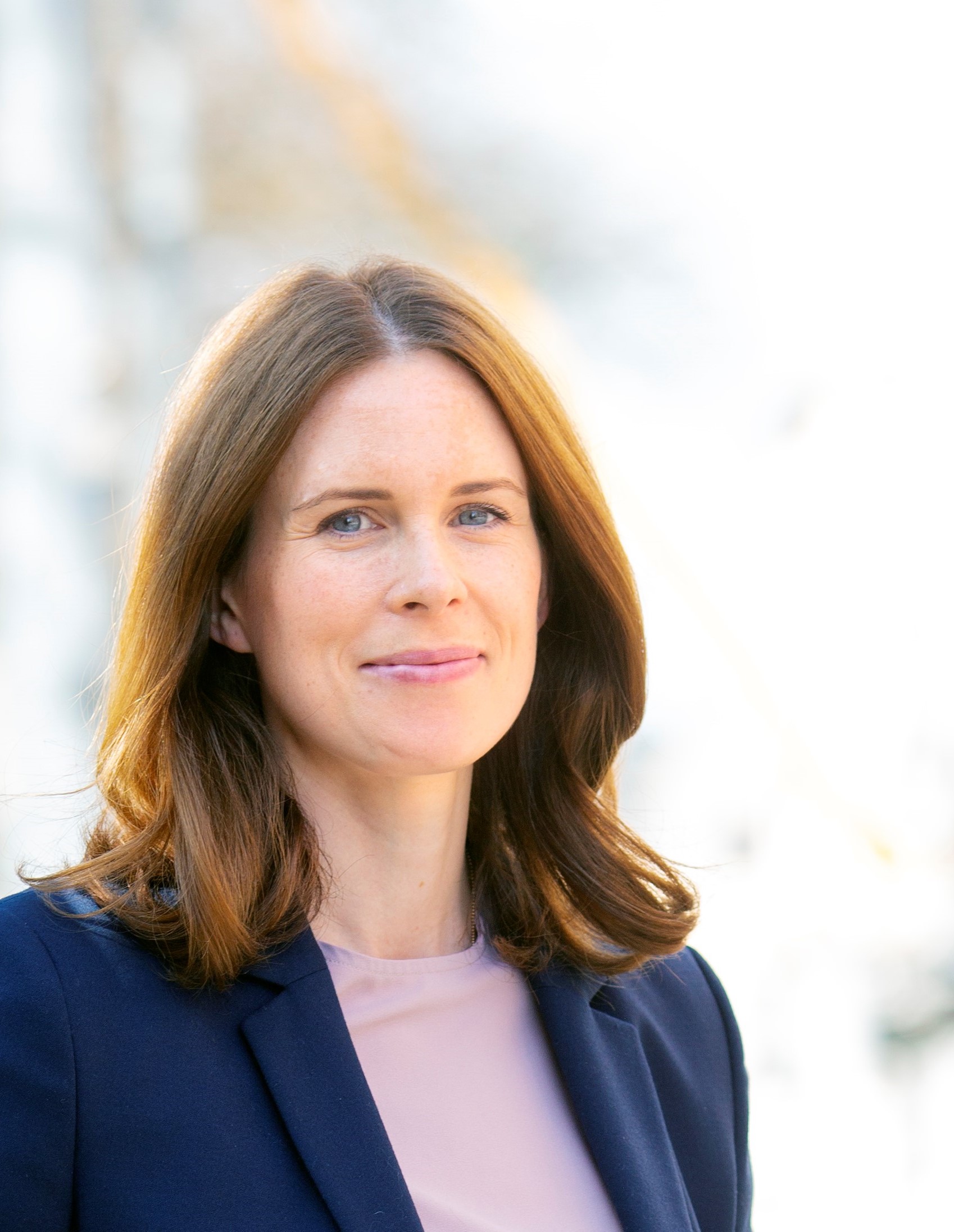
Emma Berglund
Swedish Forest Industries Federation
Emma Berglund is Forest Director in charge of EU and international affairs at the Swedish Forest Industries Federation. She has previously headed the umbrella organization for Europe’s private forest owners in Brussels and worked for the Federation of Swedish family forest owners. Emma is a forester by education, holding a dual master’s degree in forestry from the Swedish University of Agricultural Sciences and the University of British Columbia. Her passion for forests and how they can help us build a better, greener and more sustainable future is a red thread in her life and career.
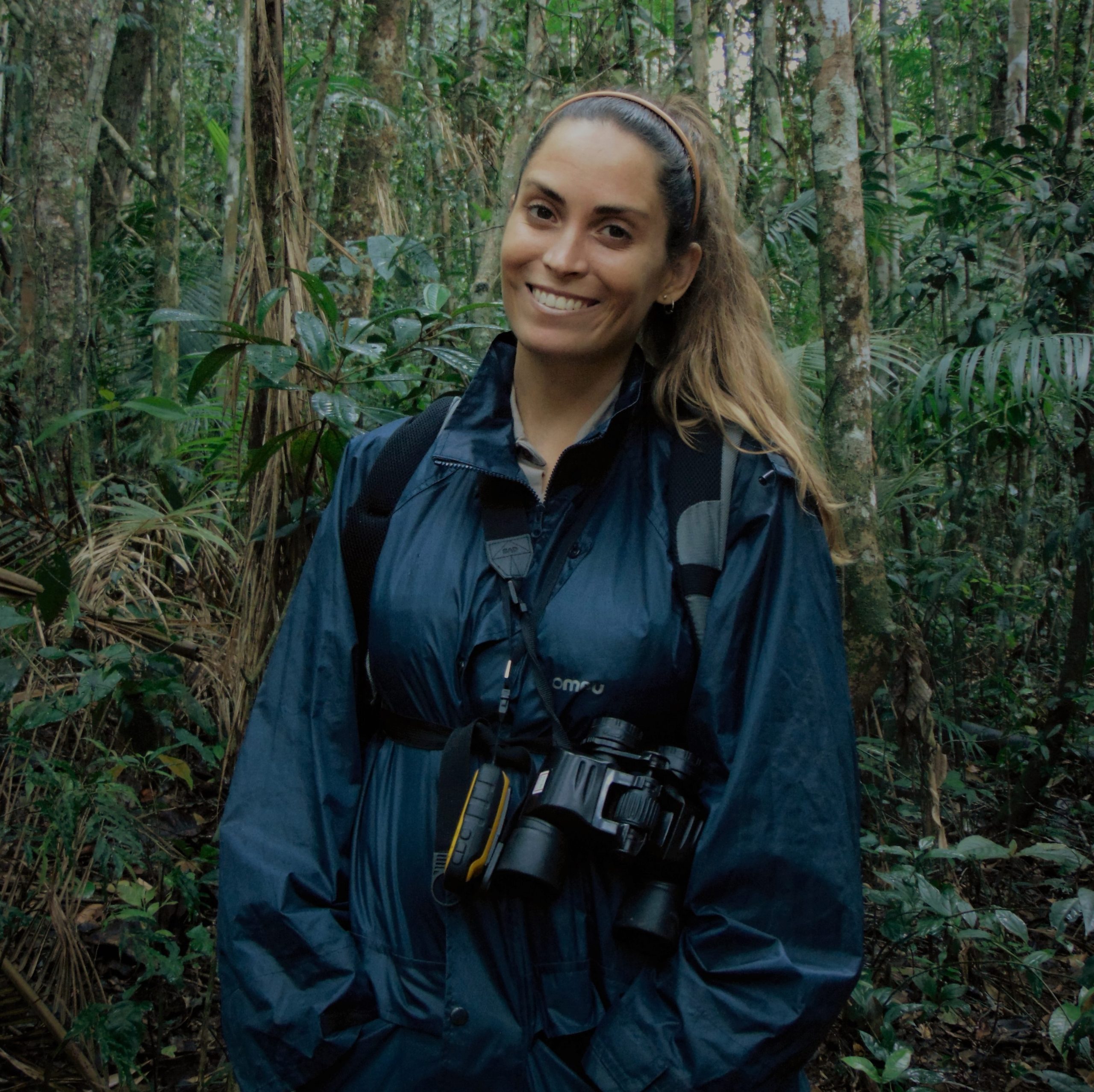
Analí Bustos
PhD Studetn and Forest GLF Restoration Steward for 2021
Analí has a degree in Biological Sciences (National University of Río Cuarto – 2015, Córdoba, Argentina) and a Master’s in Ecology and Nature Conservation (Federal University of Paraná – 2020, Curitiba, Brazil). I’m currently a Ph.D. candidate in the Research Group on Ecological Interactions in Agroecosystems – FAUBA (Buenos Aires, Argentina). Since 2016 I have been working on a forest restoration project called “Monte Alegre Natural Reserve”. Her passion is researching and promoting restoration holistically: not only of ecosystems and environmental services but also the restoration of society’s feelings about Nature.
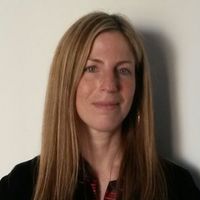
Monica Gabay
Coordinator Division 9.00.00: Forest Policy and Economics, IUFRO.
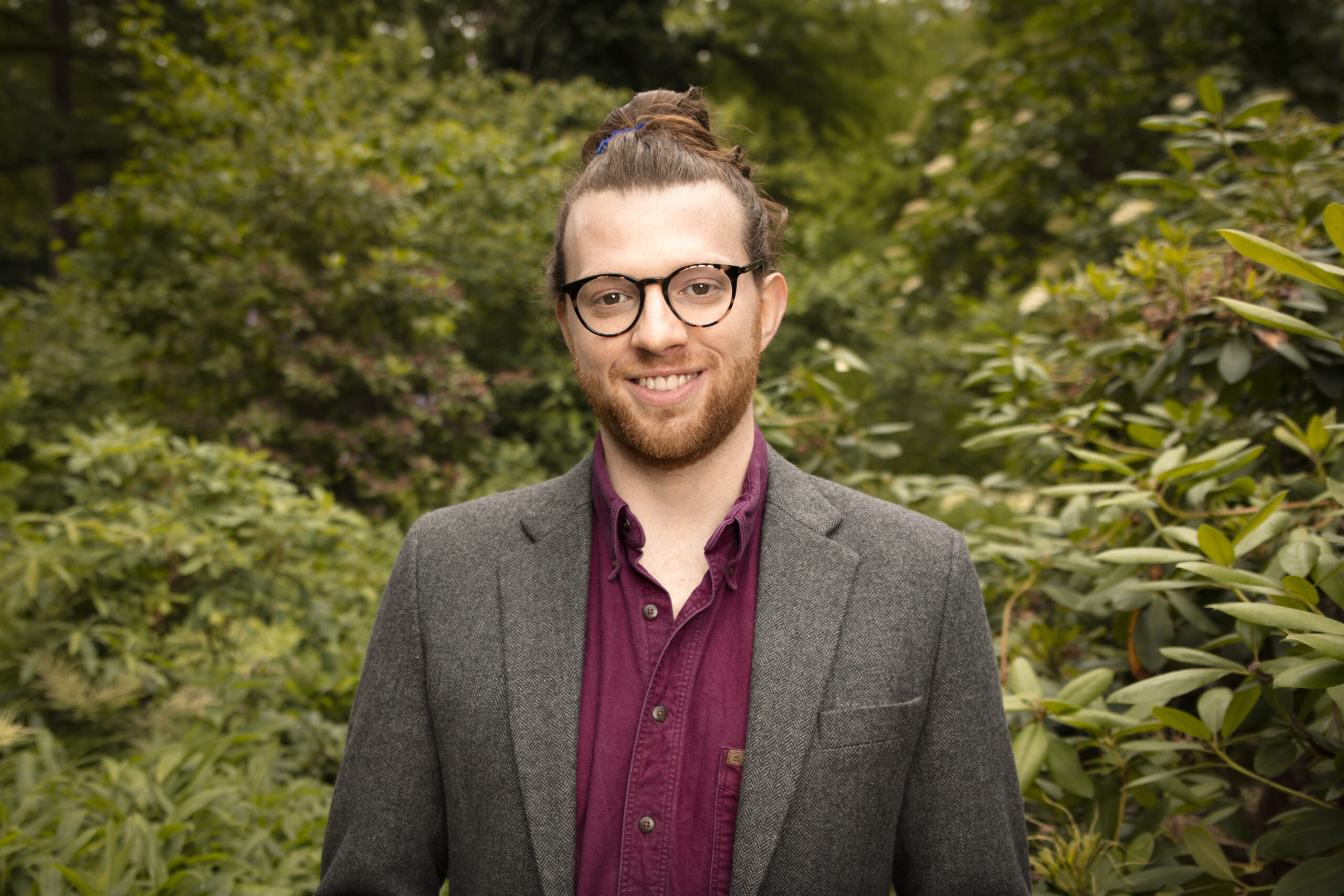
Charles Nelson
ESG manager for the Landscape Resilience Fund
Recording
Closing remarks
15:20
UTC+1 – 15:50
Speakers

Silvia Abruscato
Policy Advisor, FOREST EUROPE Secretariat
Silva is an environmental scientist and IFSA alumni who graduated from both University of Copenhagen and University of Natural Resources and Life Sciences, Vienna. Silvia strongly believes in the necessity to strengthen the connection and create trustful dialogues between scientists, policymakers and interested parties.
Her research focused on the conservation, environmental policy, and management of forests in Europe. She is driven by increasing awareness through innovative communication mechanisms and multi-sectoral dialogues, providing interested public with science-based information and resources on emerging forestry issues. The enhancement of multi-stakeholders community awareness and involvement in decision-making processes are keys to face future challenges.
Silvia is thrilled to be part of the Liaison Unit Bonn team, supporting the Forest Europe process and collaborating with renowned experts and international colleagues.

Simone Massaro
Co-Head IFSA YFPD Task Force
Simone is an IFSA member and master student in Forest and Ecosystem Sciences.
He has a long involvement in IFSA and was part of the board for two years as Vice President and then Executive Secretary. He was involved since the beginning in the planning of YFPD from the IFSA side.
Simone has a bachelor in forest and natural sciences from the university of Tuscia, Viterbo, Italy. He is finishing his master in Forest Ecosystem Analysis with the study track in Ecosystem Analysis and Modelling at the Georg-August University in Göttingen, Germany.
